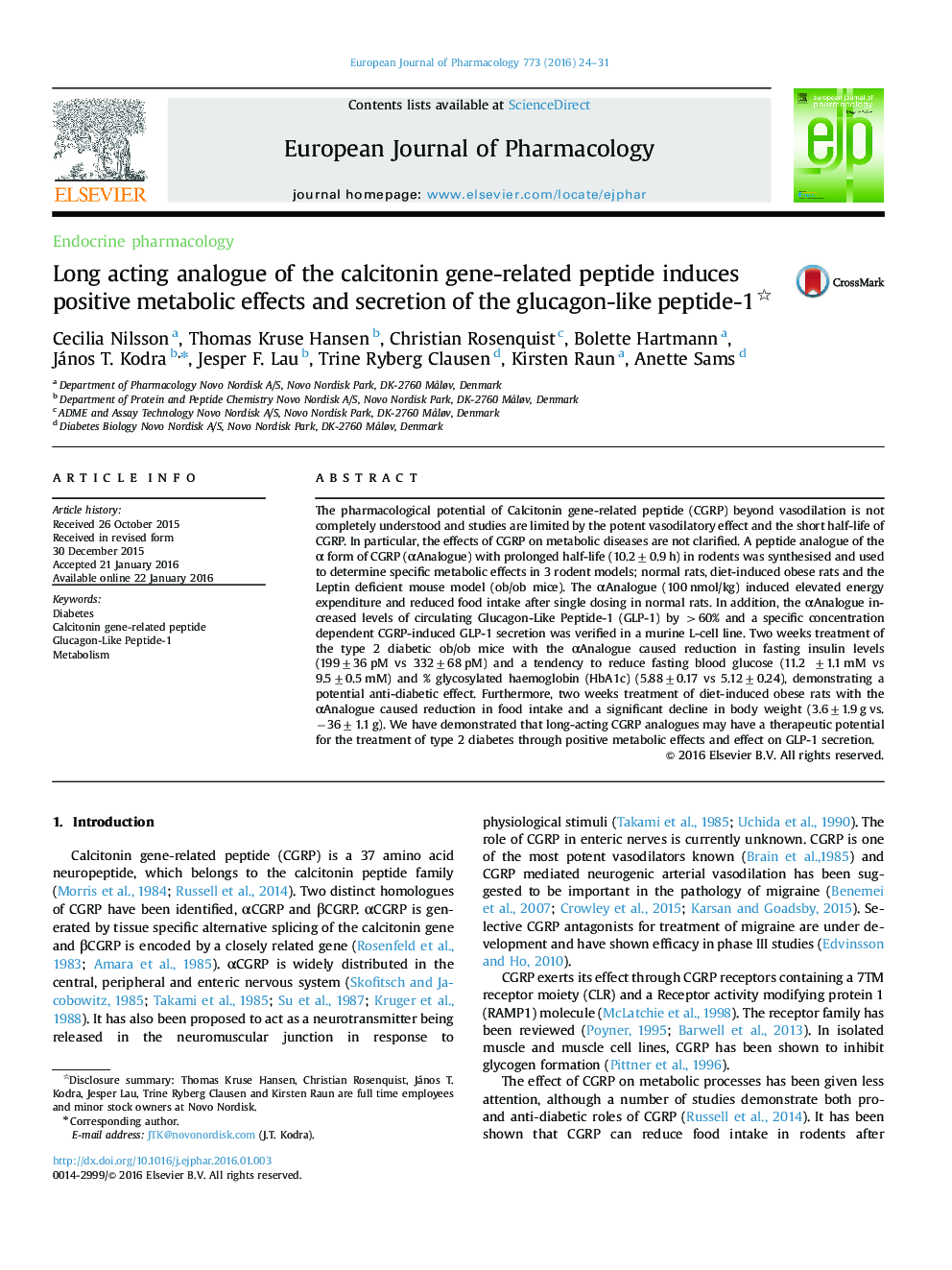| Article ID | Journal | Published Year | Pages | File Type |
|---|---|---|---|---|
| 2531174 | European Journal of Pharmacology | 2016 | 8 Pages |
The pharmacological potential of Calcitonin gene-related peptide (CGRP) beyond vasodilation is not completely understood and studies are limited by the potent vasodilatory effect and the short half-life of CGRP. In particular, the effects of CGRP on metabolic diseases are not clarified. A peptide analogue of the α form of CGRP (αAnalogue) with prolonged half-life (10.2±0.9 h) in rodents was synthesised and used to determine specific metabolic effects in 3 rodent models; normal rats, diet-induced obese rats and the Leptin deficient mouse model (ob/ob mice). The αAnalogue (100 nmol/kg) induced elevated energy expenditure and reduced food intake after single dosing in normal rats. In addition, the αAnalogue increased levels of circulating Glucagon-Like Peptide-1 (GLP-1) by >60% and a specific concentration dependent CGRP-induced GLP-1 secretion was verified in a murine L-cell line. Two weeks treatment of the type 2 diabetic ob/ob mice with the αAnalogue caused reduction in fasting insulin levels (199±36 pM vs 332±68 pM) and a tendency to reduce fasting blood glucose (11.2 ±1.1 mM vs 9.5±0.5 mM) and % glycosylated haemoglobin (HbA1c) (5.88±0.17 vs 5.12±0.24), demonstrating a potential anti-diabetic effect. Furthermore, two weeks treatment of diet-induced obese rats with the αAnalogue caused reduction in food intake and a significant decline in body weight (3.6±1.9 g vs. −36±1.1 g). We have demonstrated that long-acting CGRP analogues may have a therapeutic potential for the treatment of type 2 diabetes through positive metabolic effects and effect on GLP-1 secretion.
